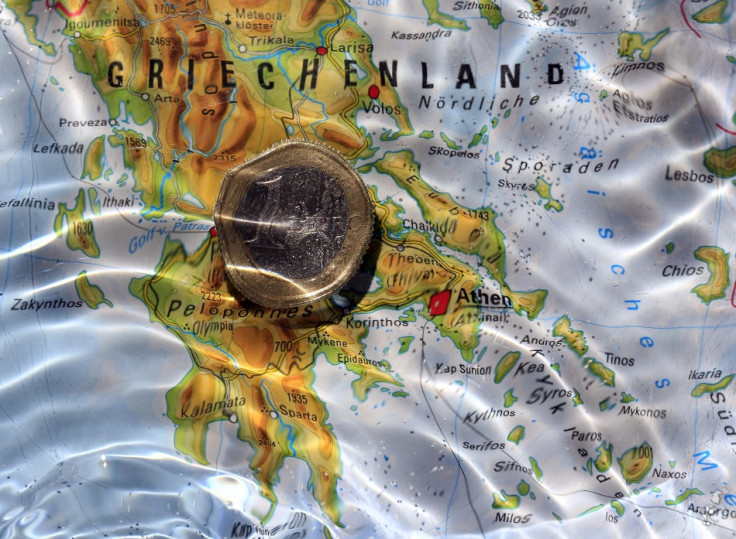American History X - European Style: Greece's Latest Bailout is Pure Politics

Every American high school student learns (and then most promptly forget) the origins of the US Supreme Court through one specific case.
In 1800, Thomas Jefferson was elected President over incumbent John Adams. In a fit of pique, Adams sought to limit the political damage by placing scores of friendly judges into Federal courts up and down the young country.
The now infamous "Midnight Appointments" - made during the lame duck lull between Adams' defeat and Jefferson's inauguration - were immediately rescinded when Jefferson took office. One of the rejected magistrates, a wealthy Maryland businessman, asked the Supreme Court to force Jefferson's Secretary of State to put him on the bench.
The Court refused and the landmark case - Marbury versus Madison - became etched in American history.
Aside from asserting its nascent authority, the Court basically told the political establishment that the guy on the way out couldn't screw things up for the guy on the way in and expect to be protected by the Constitution.
"A country of laws, not men" Justice James Marshall wrote.
Okay, what does this have to do with Europe, you ask?
With each and every miniscule advance in region's sovereign debt crisis, it's hard, if not impossible, to escape the fact that the current crop of decision-makers seem far more interested in deferring the hard choices for the next guy than taking decisive and unpopular action today.
The Eurogroup's latest exercise in can-kicking Greece's collapsing finances a few years into the future with a mixture of interest rate forgiveness, term extensions and income write-offs - while making no firm commitments that might upset their own constituents - is a case in point. It also has far more political implications that it does economic benefit.
The wafer-thin coalition government of Greek Prime Minister Antonis Samaras will likely get a short-term boost - in the sense that it won't collapse before the New Year - and Europe's leaders can take a long holiday break without having to answer too many humiliating questions about their failure to agree a new budget.
At the same time German Chancellor Angela Merkel gets to brag about achieving, through the incessant voice of her unofficial spokesperson, finance minister Wolfgang Schaeuble, a "solution" for the one spot fire in the European blaze that won't for the moment cost anything.
Which suits her and her collation government - which faces the electorate next fall - perfectly well.
A progress in not working
That doesn't mean the latest accord - which still needs the approval of various parliaments - is going to work. In fact, it's doubtful the men and women who arranged it even gave this any consideration.
Greece, we're told, will get interest-free loans for ten years from the permanent bailout fund and a fourth reduction on bilateral loans rates from its European partners, saving around €44bn. Various bits of tinkering and accounting wheezes will save a few hundred million more and trigger the release of an equal amount of cash staggered over the next few months.
Despite the easy money, however, Greece will still need an extra two years before its primary budget (the one that *excludes* debt payments) will lift into surplus. But only if the government finds enough money to pay the $30bn in debt that will mature in the next two years.
How this particular paradox was allowed to pass through the media filter is at the time of writing unknown to your correspondent.
And that's not the only problem.
Greece's economy, the OECD said Tuesday, will continue to shrink well into 2015 - and potentially beyond. Eight months ago, the thinktank forecast it would grow by next summer. Unemployment is offically past 25 percent. Household basics cost more than anywhere else in Europe. Its banks are on life-support and its citizens exhausted.
The IMF, a slightly more cold-hearted lender, won't agree to the new deal unless a Greek bond buyback pulls its debt ratio closer to something it might consider "sustainable". As you might have guessed, the Eurogroup provided no details on this, although Schauble hinted the programme could begin this week.
Similar opacity surrounded the idea of debt forgiveness - a red line the current European leadership isn't prepared to cross on its own watch but the only thing anyone who doesn't need to get elected agrees will actually work.
The issue was left open for discussion somewhere further down the road.
In other words, at a time when someone else has to clean up the mess or the chances of the person doing the mopping getting turfed by his or her electorate are far more remote.
US Supreme Court justice James Madison saw the potential damage this sort of politics could create and nipped it decisively in the bud some 210 years ago.
European leaders likely understand the same risk, but seem to lack either the power or the will to address it.
The inaction has taken a mildly surprising spike in Greece's budget deficit to 7.5 percent of GDP four years ago - that would have required around €10bn to correct - into the smouldering ruins of a collapsing economy, multiple bailouts, three parliamentary elections and millions of lost jobs that afflicts it today.
And without a real fix, we can expect more of the same.
© Copyright IBTimes 2024. All rights reserved.





